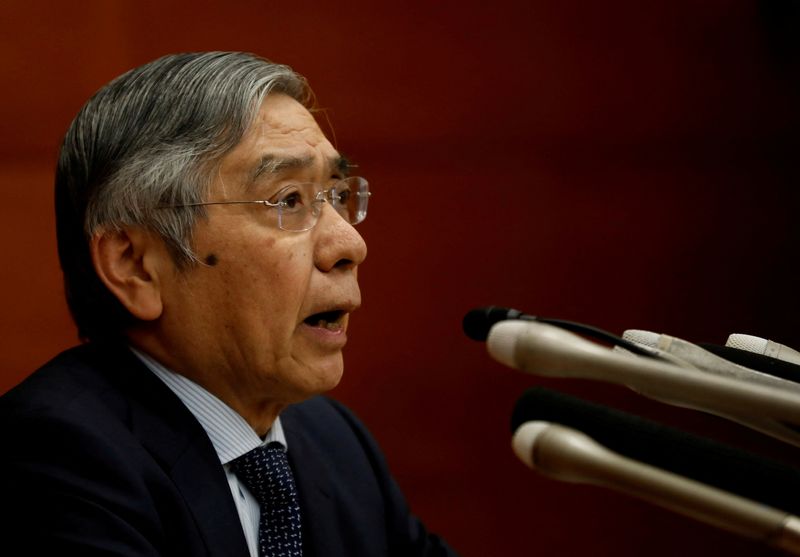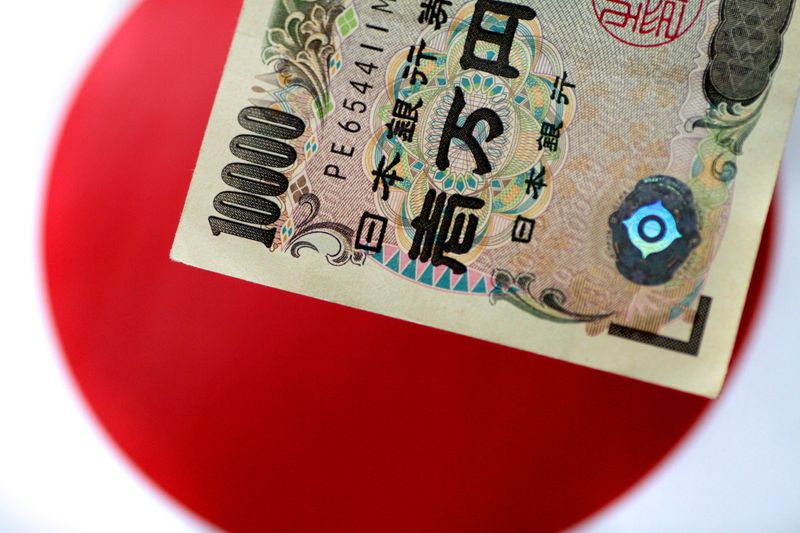By Leika Kihara and Daniel Leussink
TOKYO (Reuters) -Japan's central bank chief Haruhiko Kuroda apologised on Tuesday for a remark a day earlier that households were becoming more accepting of price rises after drawing political heat on the issue, underscoring public sensitivity to rising living costs.
The comment came at a sensitive time for the government of Prime Minister Fumio Kishida, which faces growing calls to tackle rising costs of food and fuel ahead of an upper house election next month.
"I'm sorry that the expression caused misunderstanding somewhat," Kuroda told reporters, adding that it had been inappropriate for him to say households were becoming more accepting of price rises.
Earlier, opposition lawmaker Kenji Katsube, one of several politicians who questioned Kuroda in parliament, said the Bank of Japan governor's comment showed he "did not understand how the public feels" about price rises.
News agency Kyodo quoted Trade Minister Koichi Hagiuda as saying, "It deviates somewhat from reality," in response to questions from reporters about the comment.
The remark also drew criticism on social media, with responses using the hashtag "We can't accept price increases".
One user wrote, "We're buying goods because they are daily necessities, not because we're accepting" higher prices. "Everyone is suffering pain."
Another wrote, "Only wealthy people like you were able to save during the coronavirus pandemic."
While conceding his words may have been inappropriate, Kuroda said the remark was intended to help explain the need for more wage growth.
"We aren't just aiming to raise prices," he said. "We instead want to create a positive cycle where prices rise in tandem with stronger wage growth and economic activity."

Japan's core consumer prices were 2.1% higher in April than a year earlier, exceeding the BOJ's inflation target for the first time in seven years, boosted chiefly by rising prices of food and fuel.
BOJ officials have repeatedly said such cost-push inflation will be temporary and will not trigger a withdrawal of monetary stimulus.
